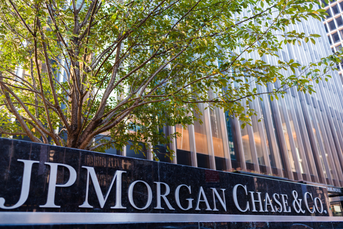Hedge fund duo wants traders to risk their own money

They aim to upend the traditional hedge traders fund model.
When hedge fund traders make money, they get a share of the kill. When they lose, it’s all pushed to the clients.
Two former top executives at Steven Cohen and Crispin Odey’s investment firms are trying to turn this traditional model on its head.
Andrew Lubin, previously chief executive officer of the London unit of SAC Capital Advisors, and Tim Pearey, former CEO of Odey Asset Management, said they have started a hedge fund that provides capital to traders if they put in their own cash and agree to lose their money first when bets fail.
Such arrangements, known as first-loss funds, are a niche part of the $4 trillion hedge fund industry and offer traders an opportunity to hold on to more of their profits in exchange for taking on the bulk of the risk. Traders signing up for Lubin and Pearey’s London-based AB Asset Scale could keep as much as 60% of the profits they generate, higher than traditional industry payouts of 20% at major multi-strategy hedge funds.
Lubin and Pearey are trying to build the business in Europe, along the lines of peers such as Prelude Capital Management, Boothbay Fund Management and Topwater Capital in the US. Some of the industry’s veteran traders from John Paulson to Kyle Bass have previously used first-loss funds to execute their bets.
AB Asset has signed up its first money manager, Marco Serra who specializes in currency derivatives trading, and is in talks with about a dozen others to join the platform, the pair said in an interview.
“We view this as a mentoring, seeding platform for future hedge fund managers or standalone portfolio managers,” Lubin said. “This is a very impressive candidate pool because you have to have an extraordinary high conviction in your own capabilities to step into this space.”
The launch comes at a time when money managers are finding it hard to raise capital from investors who are increasingly migrating toward multi-strategy hedge fund giants from Citadel and Millennium Management to Balyasny Asset Management where teams of traders invest across asset classes.
Such platforms frequently hire and fire traders whose performance has dropped or when a trading strategy they run falls out of favour. Lubin and Pearey said they are looking to pick talented traders affected by this churn.
The first-loss funds provide as much as nine times the capital of a hedge fund or a trader, with their money being housed in a separately managed account. The arrangement, which provides a significant boost to assets under management, requires any losses to accrue to the trader’s own invested capital first.
While the established first-loss fund providers typically require a trader to put in millions of dollars, AB Asset is signing up money managers with as little as $250,000 of capital. Investors in AB Asset fund will get 20% of the profits generated and half of the management fee.
Losses of up to 10% will be absorbed by the trader’s own capital with the fund aiming to liquidate their bets when declines hit 8.5%, according to an investor document seen by Bloomberg.
After working for major investment banks, Lubin moved to the hedge fund industry where he first managed money at Ken Griffin’s Citadel and later worked as CEO for Cohen’s SAC Capital’s UK business. Pearey was Odey’s CEO from 2015 to 2021.
Learn more about reprints and licensing for this article.








